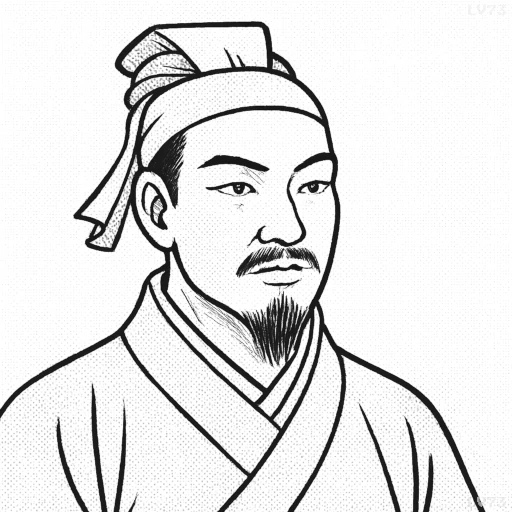“It is essential to seek out enemy agents who have come to conduct espionage against you and to bribe them to serve you. Give them instructions and care for them. Thus doubled agents are recruited and used.”

- 544 BC-496 BC
- Born in China
- Military strategist, military strategist
table of contents
Quote
“It is essential to seek out enemy agents who have come to conduct espionage against you and to bribe them to serve you. Give them instructions and care for them. Thus doubled agents are recruited and used.”
Explanation
In this quote, Sun Tzu emphasizes the strategic importance of espionage and the use of double agents in warfare. The key to winning, according to Sun Tzu, is not only to gather intelligence about the enemy but to manipulate their own agents and turn them into sources of valuable information. By recruiting and bribing enemy spies, the leader can gain insight into the enemy’s strategies, movements, and weaknesses. These double agents can then be used to feed misinformation, sabotage plans, or even turn the enemy’s own forces against them. This strategy allows for a powerful form of psychological warfare, where the enemy is unknowingly betrayed from within, thus weakening their resolve and making them vulnerable to defeat.
This tactic is still highly relevant in modern warfare, intelligence operations, and even corporate espionage. In intelligence and counterintelligence, agencies like the CIA, MI6, and KGB have long relied on double agents to infiltrate adversarial organizations and gain crucial information. One famous example is the Cambridge Five, a group of British spies who secretly worked for the Soviet Union during the Cold War. Their actions, once discovered, severely compromised British and American intelligence efforts. In corporate espionage, companies may recruit disgruntled employees or competitors’ agents to gather insider information, which can then be used to gain an advantage. In politics, nations use covert operations to influence or destabilize rival governments through the use of infiltrators or disinformation campaigns.
Historically, the principle of recruiting enemy agents has been used effectively by many famous leaders. Napoleon Bonaparte utilized spies to infiltrate enemy camps and gather intelligence, often using false flag operations to deceive his adversaries. During the Second World War, both the Allied and Axis powers used double agents extensively. A famous example is Juan Pujol García, a Spanish double agent who worked for both the British MI5 and the Nazis, feeding misinformation to the Germans that helped deceive them about the D-Day invasion. In ancient China, the use of spies was crucial in the Warring States Period, with leaders like Sun Tzu and King Ying Zheng (later Qin Shi Huang) using disguised agents to infiltrate enemy camps and weaken their opponents from within. This strategy is a cornerstone of covert operations, demonstrating the continued importance of intelligence and deception in achieving victory with minimal direct conflict. Sun Tzu’s insight into espionage remains a powerful tool for modern strategists, showing that often, the path to victory lies not in battle, but in turning the enemy’s resources against them.
Would you like to share your impressions or related stories about this quote in the comments section?
